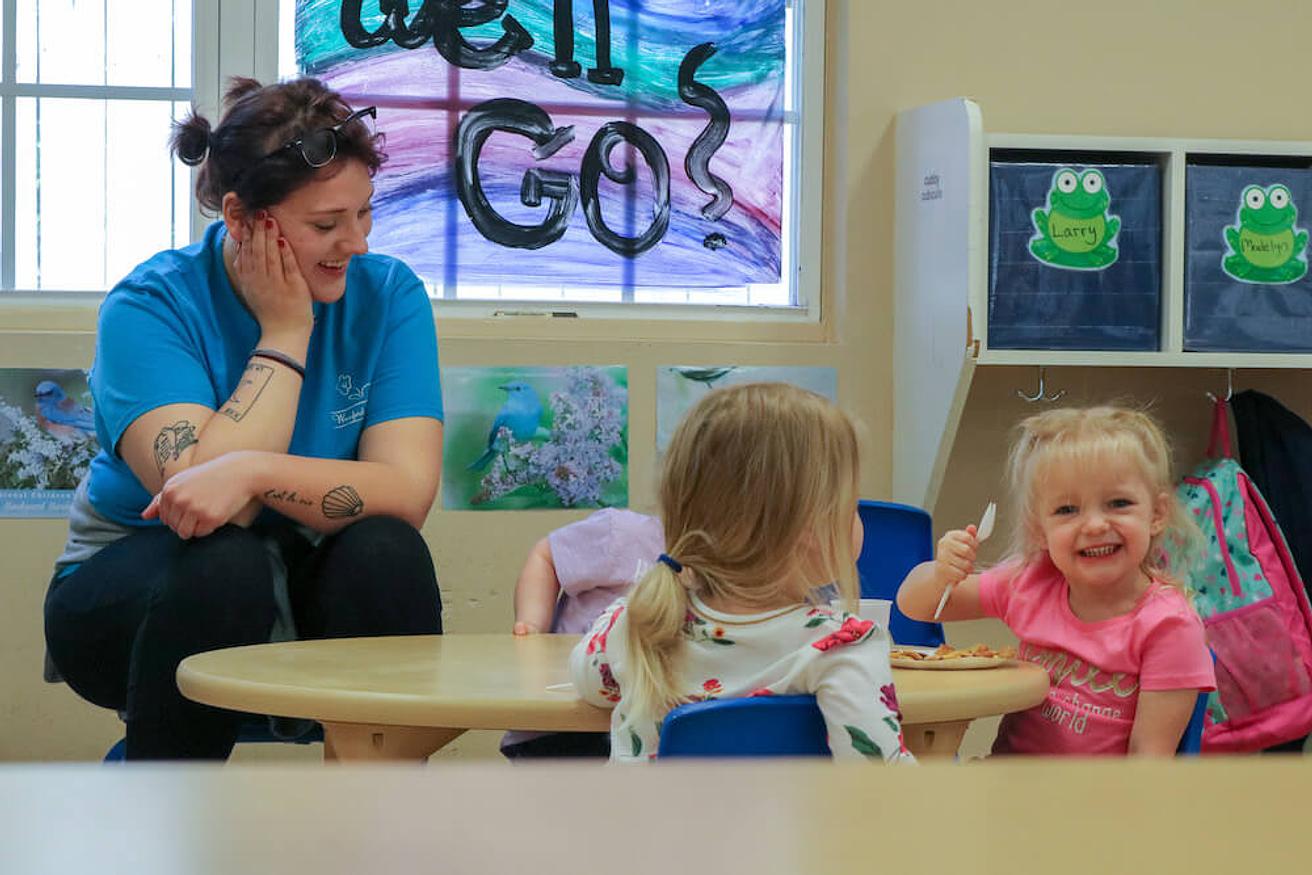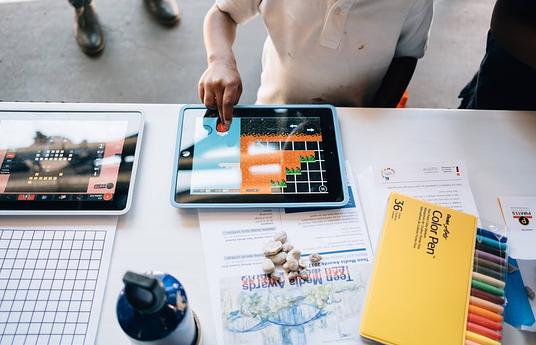Around the world, few would deny or ignore the importance of children’s learning in the early years. In the United States, the justification for the allocation of resources to support early childhood education is often framed as an investment to secure a larger financial return for society. Reducing children’s development to the equivalence of market gains obscures the deeper values of early childhood – for example, the building of human relationships around the child. While investing in early childhood can take the form of physical resources, such as classroom furnishings, curricula, playgrounds, books, etc., focusing narrowly on the “stuff” of early learning often overlooks the most essential element - the people who spend their lives serving the field of early childhood. Truly investing in early childhood education means supporting and empowering the teachers, caregivers, and helpers who work with children every day. We are reminded of the words of Fred Rogers, the creator of the public television children’s program Mister Rogers’ Neighborhood (1968 – 2001, USA): “Deep and simple is far more essential than the shallow and complex.” With greater and greater competition and standardization pressure placed on early childhood educators, it becomes easy to lose sight of what is simple, yet deeply important, to everyday work with children.
What is deep and enduring in the work of early childhood?
Ask adults who work with children if the relationships they have with the children in their care are important, and, likely, you will be met with a resounding “Yes!” Children learn and grow within caring and supportive human relationships. Besides food, water, and physical safety, there is nothing more important for the development of young children than the day-to-day interactions and relationships that they have with those who care for them, including early childhood educators. Whether these teachers and caregivers are changing diapers with infants and toddlers, reading stories to groups of preschoolers, or practicing pattern-making with kindergarteners, the developmental needs of children for human relationships are present. In early education, the daily interactions between children and educators and the ensuing relationships are the “active ingredients” of early childhood that drive and shape how children learn and grow.

One way of investing in early educators is by helping them to see their own value to early childhood education and continue to grow their own practice in service of children and families. What are relationships made of and how do we grow them? How do we support caregivers to recognize and realize the impact of these simple moments as the most essential part of their work in early childhood? Professional training may abound, but educators rarely have the chance to deeply engage in professional learning opportunities within a supportive community of peers, reflecting on what truly matters in their daily practice – the positive developmental interactions between adults and children.
At the Fred Rogers Center for Early Learning and Children’s Media, outside of Pittsburgh, PA, we have been developing and adapting an approach called “Simple Interactions” to affirm the importance of early educators by highlighting their positive, responsive, and supportive human interactions in children's learning and development. Simple Interactions is a practice-based, strengths-focused, and community-driven approach to support those who serve children, youth, and families.
As a professional learning approach, its key premise is that the most sustainable best practices can be built upon what adults already do well with children and youth. Using videos, stories, and observations of real practice with young children as raw material for learning, educators reflect on their relationships with children using the one-page Simple Interactions Tool, which provides a common, descriptive language to talk about interactions in practice. The visual representation highlights four dimensions of developmental interactions: Connection, Reciprocity, Inclusion, and Opportunity to Grow.
-
Connection - Children and adults seek to be present and in tune with each other, whether they are listening, talking or working together.
-
Reciprocity - The power and control in any joint activity – whether it is a conversation, transition time, or game—gradually shift towards balanced “serve and return” exchanges (from either adult-lead or child-lead).
-
Opportunities to grow - Children are incrementally supported to stretch beyond comfort zones of their current competence and confidence.
-
Inclusion - All children, especially those who are the least likely to engage due to a disability, temperament, or other factors, are being invited and welcomed into a community of peers.
These characteristics of developmental interactions are visible in simple, everyday moments across diverse geographical and cultural contexts with wide variations in material and professional resources. The Simple Interactions Tool can be used as a lens to examine, analyze, discuss, and improve human interactions anywhere children live, learn, and grow, and has been used in contexts such as early childhood education, K12 schools, out-of-school learning, residential care, children’s hospitals, and community settings. During these opportunities, we facilitate practitioner conversations to identify what is already working in their daily practice to widen and deepen the impact of these practices. In doing so, we invest in early educators by highlighting, affirming, and appreciating their everyday simple interactions as the foundation for all children’s development.

At its core, the message of Simple Interactions for all educators who serve children around the world is simply this: to remember how important you are to the field of early education and human development. It is not the resources, curriculum, and “stuff” of early childhood that is most important, but the presence of those helpers working with children every moment that makes the difference. Investing in early educators – through their pay, professional learning, health, and well-being – promotes the collective well-being of the entire system of early childhood. Supporting the people of early childhood education and their capacity to provide for the needs of children is the ultimate investment we can make to promote children’s continued learning and growing.
Simple Interactions is one of the twelve innovations recognized in the HundrED Spotlight on the region of Pittsburgh. To explore Simple Interactions, go to their innovation page. For other selected innovations, click on Pittsburgh Spotlight.




